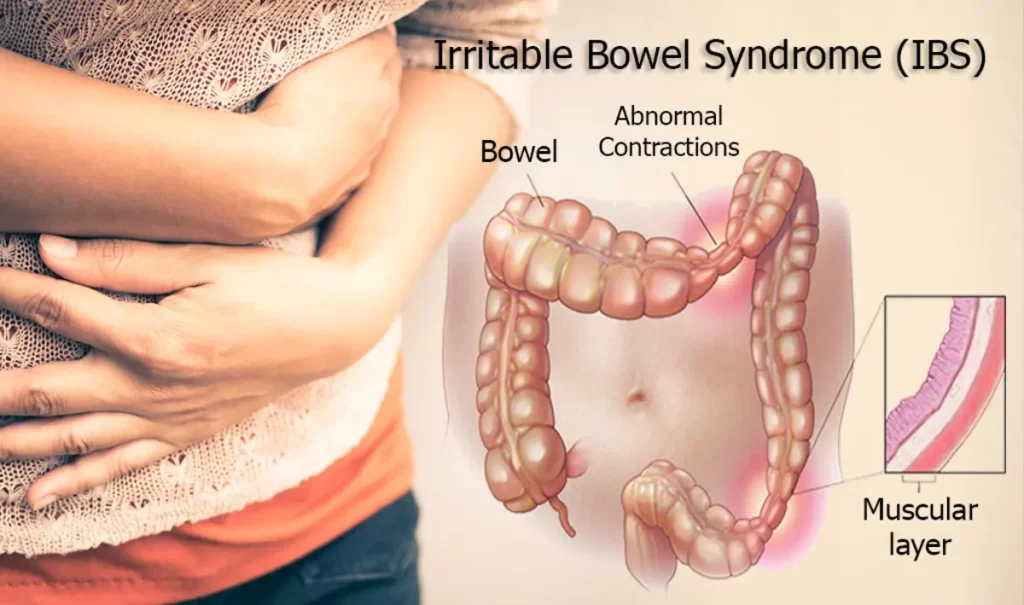Indicative Signs of Irritable Bowel Syndrome

If you feel like your stomach is in a constant state of upheaval, it is possible that you could be suffering from Irritable Bowel Syndrome (IBS). It affects the large intestine, resulting in abdominal pain and changes in bowel habits. Cypress irritable bowel syndrome (IBS) can be difficult to diagnose since the symptoms can vary greatly from person to person.
The first step to treating the condition is to visit a doctor for a diagnosis. During the diagnosis, your doctor may ask about your medical history, any medications you take, and when your symptoms started. They will also check for physical signs of discomfort, such as abdominal tenderness or swelling.
Causes of irritable bowel syndrome (IBS)
Here find more causes of irritable bowel syndrome (IBS):
- Eating certain foods: Certain foods such as dairy and wheat products, beans, carbonated drinks, fried food, or even artificial sweeteners can trigger IBS symptoms.
- Stress and anxiety: Stressful situations can bring on IBS symptoms. But it is unclear if stress is the cause or just a trigger of IBS.
- Hormonal changes: Hormonal shifts during the menstrual cycle can cause IBS symptoms to flare up.
- Medications: Certain medications, such as antibiotics and antidepressants, can trigger or worsen IBS symptoms.
Key symptoms of irritable bowel syndrome (IBS)
If you are experiencing the following symptoms, you likely have IBS:
Abdominal pain and cramping
The pain associated with IBS can vary in intensity and location. It often occurs after eating or during changes in bowel movements. The pain can be dull and chronic or sudden and sharp.
Abnormal bowel movements
IBS can cause changes in bowel movements, including diarrhea, constipation, or a combination of both. The severity of these symptoms can also vary from person to person. When you experience constipation, the stools can be hard and dry. When you experience diarrhea, the stools will often be loose and watery.
Bloating and gas
IBS can cause bloating because of an overproduction of gas in the intestines. This can lead to uncomfortable stomach pains and a feeling of fullness or pressure in the abdomen. Your doctor can recommend treatments to reduce gas and bloating.
Fatigue
IBS can be very exhausting, both mentally and physically. Many people with IBS experience fatigue due to the daily stress of dealing with the condition.
Anxiety and depression
Living with IBS can be frustrating and emotionally draining. Those suffering from IBS often struggle with anxiety and depression due to their symptoms.
These are some of the recommended treatment options for irritable bowel syndrome (IBS):
- Diet modification: Your doctor may recommend avoiding certain foods that trigger IBS symptoms, such as dairy or wheat products, beans, carbonated drinks, fried food, and artificial sweeteners.
- Stress relief: It is important to find ways to cope with stress to reduce your IBS symptoms. This can include relaxation techniques, exercise, or counseling.
- Medication: Your doctor may prescribe medications to treat the symptoms of IBS, such as antispasmodic drugs for treating abdominal pain and diarrhea, antibiotics for bacterial overgrowth in the small intestine, or antidepressant medication to help with depression and anxiety.
- Probiotics are live microorganisms found in some foods and supplements. These can help restore the balance of good bacteria in your gut and reduce IBS symptoms.
If you are experiencing symptoms of IBS, it is important to speak to your doctor at GastroDoxs.

